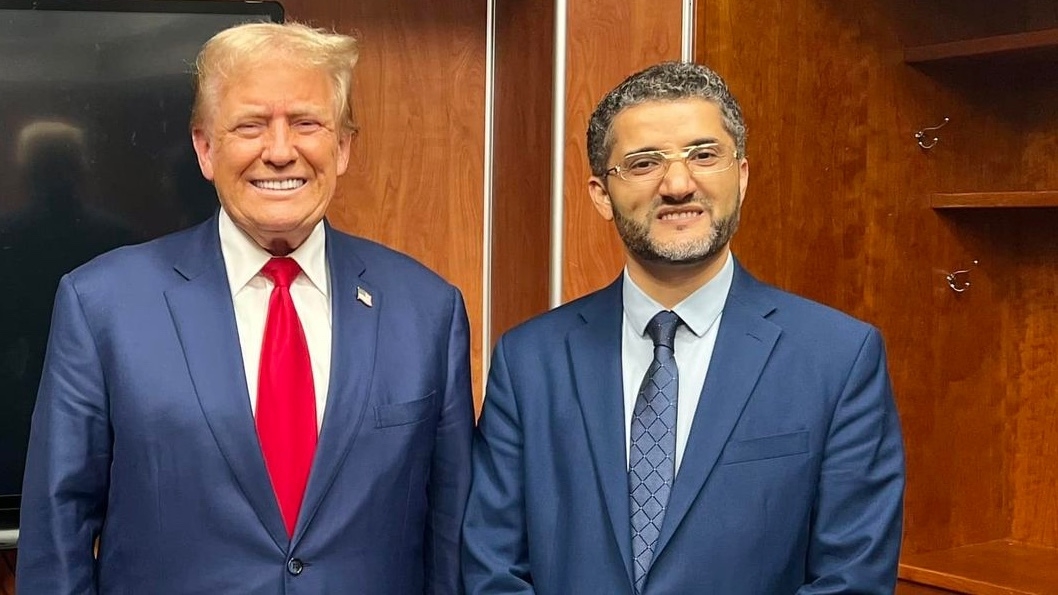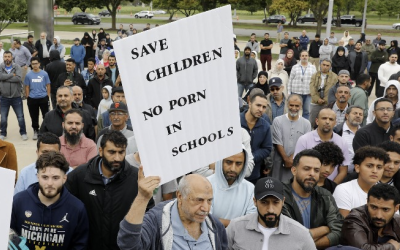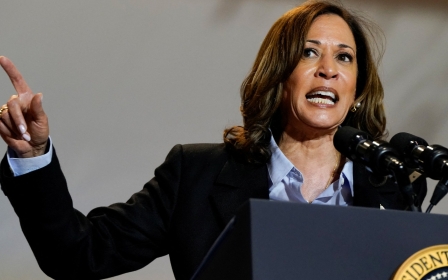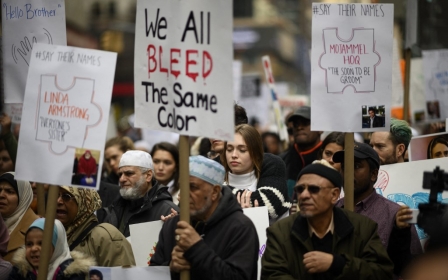Muslim mayor’s support for Trump stems from alienation by Democrats, conservative religious values

The endorsement of Donald Trump by a Muslim, Yemeni-American mayor of a small Michigan town could shake up the presidential race in a swing state that may determine the outcome of the election.
Amer Ghalib, the mayor of Hamtramck - a city just minutes outside of Detroit that boasts a population of some 30,000 people, most of whom are Muslims - announced he is backing the former president in a Facebook post on Sunday.
“President Trump and I may not agree on everything, but I know he is a man of principles,” Ghalib wrote. “I believe he is the right choice for this critical time. I’ll not regret my decision no matter what the outcome would be, and I’m ready to face the consequences.”
The endorsement comes a year into Israel’s war on Gaza - something Ghalib and many of his constituents have roundly condemned. The anger was particularly palpable after the Biden administration began launching air strikes on Yemen in January, in response to what it said was an illegitimate naval blockade by the Houthis.
In January, Ghalib turned down an invitation from the White House to attend the Conference of US Mayors, in protest against Washington’s bankrolling of air strikes in the Middle East. He indicated at the time that like many Muslim and Arab Americans, he felt betrayed and sidelined by the Democrats.
New MEE newsletter: Jerusalem Dispatch
Sign up to get the latest insights and analysis on Israel-Palestine, alongside Turkey Unpacked and other MEE newsletters
Now the Trump campaign appears to have filled that vacuum.
Twenty-minute meeting
Ghalib met with Trump for the first time just one week ago in Flint, Michigan, before the Republican candidate’s scheduled campaign rally.
That meeting lasted 20 minutes, and Hamtramck councilman Khalil Refai - a fellow Yemeni American who spoke based on his familiarity with the talking points - indicated that Trump and his team made overtures to win back the support of a community he previously tried to ban from the country in 2017.
The executive order, commonly known as the “Muslim Travel Ban”, remains in effect, albeit somewhat watered down. The Supreme Court upheld its third iteration, which still has Yemen on the list.

When Refai himself met with Trump's surrogates, he noted the presence of prominent Lebanese businessman Massad Boulos, the father-in-law of Trump's youngest daughter, Tiffany. Boulos has been helping the Trump campaign reach out to Arab communities disillusioned by the Democrats’ seeming disregard for a staggering death toll in the Middle East at the hands of Israel.
The move by the Trump team, which only picked up steam over the summer, was almost a non-starter earlier this year. In previous conversations with Republican strategists, it was suggested the party has no interest in trying to fill the gap left by the Democratic Party among Arabs and Muslims.
“We have sent a message to the other side,” Refai said, referring to the openness to meeting with Trump.
But he also explained that the mayor’s endorsement of Trump does not necessarily reflect how Hamtramck’s all-Muslim city councillors will vote, and that he himself is a longtime registered Republican who has voted for Democrats in the past.
“In the end, it’s about the entire community” and who best serves his constituents, Refai said.
Conservative values
Hamtramck has had its share of controversial headlines in the US over the last year.
Ghalib hosted Trump’s former national security advisor Michael Flynn in Hamtramck for a town hall on conservative social values, and the discussion focused on what both believe is the indoctrination of children in schools via LGBTQ+-themed books, as well as specific concerns about transgender issues and the use of hormone-blockers among minors.
In previous conversations, Ghalib has said the matter was of high priority for many in his city.
Members of the LGBTQ+ community decried the meeting, saying their rights should not be up for debate, and that their call for equal access across the gender spectrum has been misunderstood to be part of an overarching agenda.
Later the Hamtramck City Council voted unanimously to remove the Pride flag from city property, saying that no other flags would fly there beyond the city flag, the state flag, and the American flag. Democrats, led by Michigan’s attorney general Dana Nessel, condemned the move.
“I think that there's an issue where the Democratic Party - with a whole range of ethnic communities and religious communities - fell into the Republican trap of prioritising [LGBTQ+] issues over the bread and butter issues that actually mobilise people,” James Zogby, president of the Arab American Institute in Washington, DC, told Middle East Eye.
“To make an election about trans bathrooms, which is what Republicans wanted, to make it about undocumented workers, illegals, which is what Republicans wanted, and not have it be about ‘we're going to be the helping hand that gives people a lift up’... that's been a historic problem with the Democratic Party.”
Switching alliances
A former researcher at Harvard University, Bishara Bahbah, was - until recently - a registered Democrat. Now, he’s the chair of Arab Americans for Trump.
Bahbah has been campaigning for the former president across Michigan alongside Boulos and also Richard Grenell, who was the acting director of National Intelligence in the last year of the Trump administration, making him the first openly gay member of a US president’s cabinet.
“The social values between Arab and Muslim Americans and the Republican Party are quite similar,” Bahbah told Middle East Eye.
'I also believe that the only individual in the world that Netanyahu fears is President Trump'
- Bishara Bahbah, Trump campaigner, Michigan
“So that’s one of the factors. But the other factor that I have discovered is that people are telling me that during the Trump presidency, they felt that they were better off. They could afford to buy things.”
That sentiment was echoed by a number of young Arab and Muslim small business owners in the Detroit suburbs as far back as January, given many felt Democrats were not heeding their concerns over Gaza anyway.
“I have been a Democrat, and we have had zero influence over Biden’s policy, and Harris’s,” Bahbah said.
He added that Trump “is very much against the wars in general, and wanted to see an end to the war in Gaza”.
“I also believe that the only individual in the world that [Israeli Prime Minister Benjamin] Netanyahu fears is President Trump,” Bahbah told Middle East Eye. “I think that Netanyahu banking on a Trump win is saying, ‘Well, Mr President, now that you've got one, I'm gonna end the war in Gaza and give you the credit for that’.”
Trump has repeatedly said he would let Israel “finish the job” in Gaza, without making his position clear on a ceasefire.
So is the Republican candidate manoeuvrable?
“His defects we've been aware of for 40 years, first as a celebrity, and then as a candidate, then as a president, and now as a former president,” Zogby told Middle East Eye. “He is who he is, and he's a showman with a stick."
Editor's note: A previous version of this story indicated that Khalil Refai was present at the meeting in Flint between Amer Ghalib and Donald Trump. It has since been corrected to reflect that Refai was not present at the meeting, but was familiar with the talking points of the meeting.
Middle East Eye delivers independent and unrivalled coverage and analysis of the Middle East, North Africa and beyond. To learn more about republishing this content and the associated fees, please fill out this form. More about MEE can be found here.





